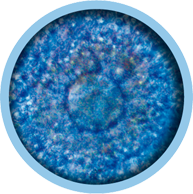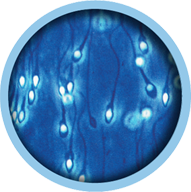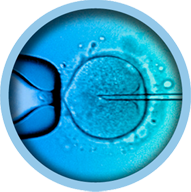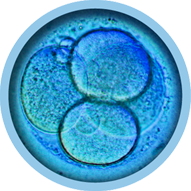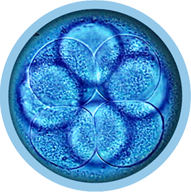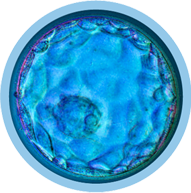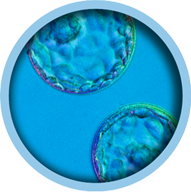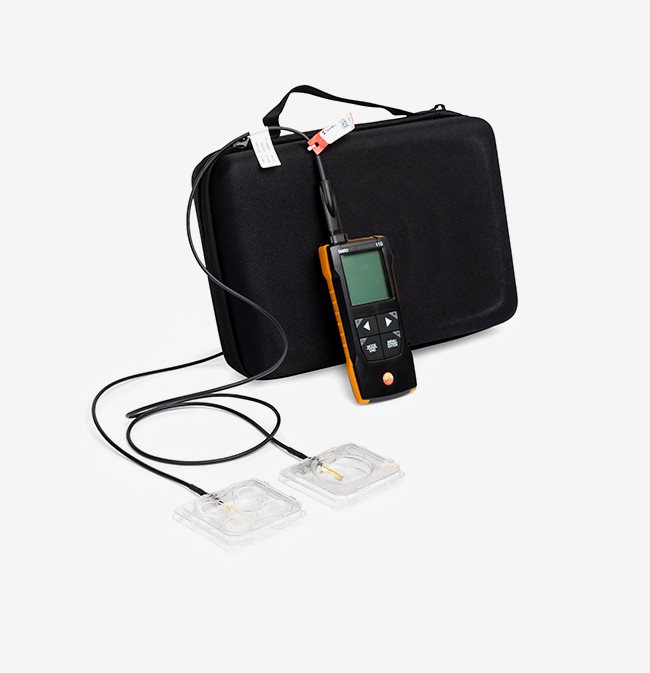
VitroTemp
Description A thermometer with a custom-made probe, specifically designed for temperature measurements of media in Vitrolife square dishes while handled outside the incubator.

- Description: Digital readout instrument and probe kit (5 Well + 40 mm dishes with built-in sensor)
Disclaimer: This solution is strictly for temperature measurement and must not be used for holding or culturing gametes or embryos.
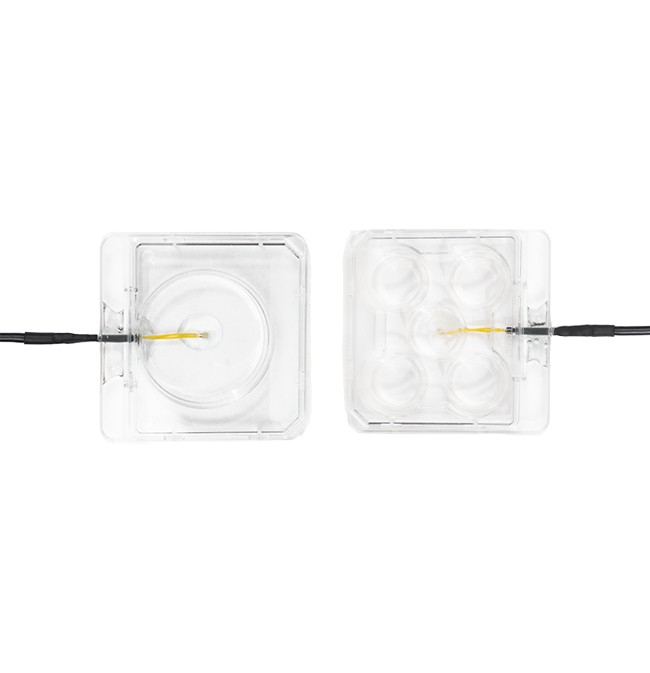
- Description: Separate probe kit (5 Well + 40 mm dishes with built-in sensor)
Disclaimer: This solution is strictly for temperature measurement and must not be used for holding or culturing gametes or embryos.

- Description: Calibration of probe, incl. one way shipping cost
Disclaimer: Only valid for European customers. For countries outside Europe, we appoint customers to accredited collaboration partners.

VitroTemp
For accurate, easy, and consistent temperature measurements of media during operations outside the incubator
Ensuring the right temperature during oocyte and embryo culture is critical for clinical success. However, minimising temperature deviations remains a technical challenge for many IVF labs, especially during handling outside the incubator. A dedicated solution, VitroTemp, makes it easier to set an optimal and consistent temperature.
Temperature is critical for oocyte and embryo development
Ensuring that gametes and embryos are kept at appropriate temperatures during handling outside the incubator is a critical factor in the IVF lab workflow. Even small temperature deviations from 37°C can have a detrimental effect on oocyte and embryo development.
Temperatures above 37°C generally cause negative effects to oocytes and embryos. It is therefore very important to make sure the temperature in the media never exceeds 37°C. Embryos respond to heat through the expression of stress response genes. High temperatures can also result in conformation changes in molecules and structures, such as denaturation of proteins, which can have a detrimental effect on oocyte and embryo physiology and development1.
Temperatures below 37°C can affect the stability of the meiotic spindle of oocytes, resulting in reduced fertilisation rates, delayed embryo development, and decreased clinical pregnancy rates2,3.


Challenges with temperature control on heated surfaces
Despite the use of heated surfaces, it is difficult to control media temperature in IVF dishes during manipulation outside the incubator. Measuring the temperature of heated surfaces alone is not sufficient, as media temperatures are affected by the interaction of both heated and non-heated surfaces and a range of other variables. Factors such as the temperature of the heated and non-heated surfaces as well as the ratios between these surfaces, evaporation, heat radiation, heat transfer, dish design, and dish setup all combine to affect media temperatures.
Temperature measurement of media in IVF dishes held on heated surfaces is further complicated by the actual process of temperature measurement. The properties of some temperature probes commonly used by IVF labs can affect their suitability for the various temperature measurements required.

Factors affecting media temperature in a dish on a heated surface
In contrast to the situation in an incubator, medium temperature in a dish placed on a heated surface is complex since it depends on the interaction of different temperatures, as well as a variety of other factors.

Temperature measurement of a medium in a dish on a heated surface is challenging because various parameters can influence the measurement
- Probe cools down the medium due to thermal conductivity
- Probe does not measure temperature exclusively at the tip because thermal conductivity interferes with measurement at the tip
- Temperature gradient in medium from bottom to surface
- Variation in temperature due to evaporation, heat radiation, or dish setup
Optimise media temperatures in dishes with VitroTemp
VitroTemp™ makes it easier to maintain the optimal temperature of media in dishes based on accurate fast and simple measurements that replicate the actual conditions for procedures used in the IVF lab.
Take control of the dish temperature
VitroTemp is a specially designed temperature measurement solution that combines an advanced digital readout instrument with a custom made probe, a Pt100 sensor attached to the bottom of the Vitrolife square dishes. It’s easy to use and provides more consistent temperature measurements than most thermometers commonly used in IVF labs today4.
With VitroTemp, it’s much more straightforward to set the correct surface temperature for the Vitrolife dishes and media you will use when handling gametes and embryos outside the incubator. The measurement takes the exact dish and media setup into account, accurately replicating actual conditions for gametes and embryos
How it works
Temperature measurement is based on electrical resistance in a small platinum sensor (Pt100) attached to the bottom of a Vitrolife square dish. Temperature is measured exclusively at this sensor, minimising any thermal conductivity interference from the probe or the user. What’s more, the reading is always accurate for the bottom of the dish, where gametes and embryos are positioned during handling and culture.
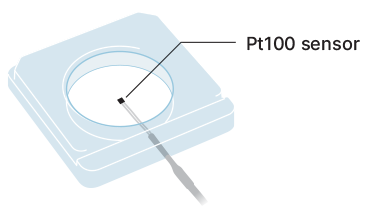

Built for the job
IVF labs put significant efforts into monitoring dish media temperatures. Unfortunately, not all temperature probes are suitable for this type of measurement due to their features and properties. All too frequently, labs use probes that are less than ideal for dish temperature measurement.
VitroTemp’s purpose-designed probes help reduce the margin for error. Once you have set the optimal temperature for your chosen media and dish, it’s easier to maintain the same temperature when you handle gametes and oocytes using the same size of Vitrolife dishes and the same media.

No more messy workarounds
VitroTemp eliminates the need to position and hold measuring equipment by hand, which can add complication and may interfere with measurements, causing errors and inconsistency.
With VitroTemp, you just add medium (and oil if required), place the dish on the heated surface, and take your reading after allowing the medium to reach thermal equilibrium.

What’s in the box?
VitroTemp comprises Vitrolife dishes in two sizes, each with a built-in Pt100 sensor, and a digital readout instrument.
Because the medium temperature depends on the dish type and setup, VitroTemp comes with two different types of Vitrolife dishes and probes to cover your needs for temperature calibration. The solution includes a 40 mm Culture dish and a 5 Well culture dish, each with a probe mounted in the bottom. An additional kit, including only the two probes and dishes, can be ordered separately.
White paper VitroTemp
To avoid the risk of a temperature exceeding +37.0°C for the oocyte/embryo, it is crucial to set the heated surface temperature accurately. Read the white paper on estimation of system-level measurement uncertainty for VitroTemp
Download white paperNew temperature probe and measurements
Christer Silversand
This presentation was part of Vitrolife and Igenomix live Academy Studios from ESHRE 2023.
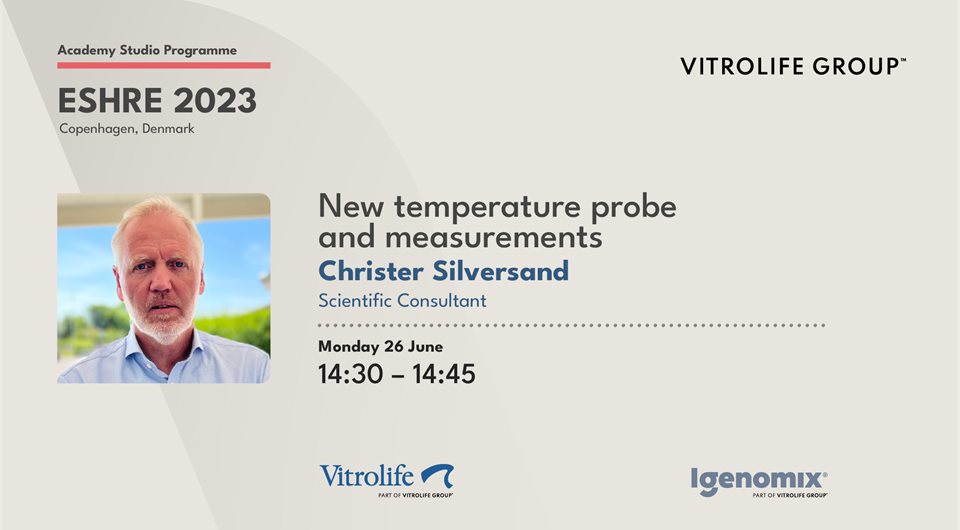
Testimonials
"Controlling the medium temperature when dishes are handled outside the incubator is one of the most critical factors in the IVF lab workflow. This is of particular importance during lab procedures such as vitrification because the gametes and embryos are handled for longer periods outside the incubator. This solution is very helpful for that, as it perfectly reflects the temperature of the culture media surrounding the oocyte or embryo. We use it frequently, since it makes our work much easier. All our lab staff are very enthusiastic about it."
– Professor Thomas Freour, Chef de service – Biologie et Médecine de la Reproduction, gynécologie médicale, Responsable du centre AMP, CHU de Nantes, France
"VitroTemp is the best temperature measurement equipment that we have introduced into our equipment maintenance program in the 30+ years that I have been in IVF. It provides us with a much greater level of confidence that the temperature we are recording is an accurate and true indication of what the embryo is being exposed to. It does not fluctuate as much as other probes, which has sped up our temperature checking processes in the morning. The probe is protected in the dish, so it is not prone to mechanical damage like so many others we have used, which means reduced replacement costs. I highly recommend that every IVF lab uses this setup. Our service contractors have also noted how much more accurate it is."
– Dr Debbie Blake, PHD, Scientific / Quality Director ReproMed, Auckland, New Zealand
"Previously, we used a thin sensor that was dipped into medium drops or larger volumes in the dishes we used. It was critical that the sensor ended up correctly positioned in the medium. The measurements also had to be done without a lid. This gave an uncertain measurement. Now we have standardised the entire procedure using VitroTemp. With two types of dishes with integrated sensors, we can measure with the right setup for different workstations and work steps. We can also measure with or without a lid. Above all, VitroTemp has helped us standardise measurements and simplify the whole process."
– Maria Johansson, Biologist, Reproductive Medicine Sahlgrenska University Hospital, Gothenburg
Remember
VitroTemp dishes should never be in contact with gametes and embryos. This solution is strictly for temperature measurement and must not be used for holding or culturing gametes or embryos.
The dishes are in direct contact with the heated surface. This means that heated surface temperatures set for Vitrolife dishes will not be accurate for dishes without direct contact to the heated surface.
VitroTemp is specifically designed for temperature measurement of media in Vitrolife square dishes and should not be used with any other dishes.
Calibration
The VitroTemp probes need to be calibrated on a regular basis. Regulatory authorities recommend that you calibrate thermometers for IVF annually. We recommend you calibrate the thermometer at 35, 37 and 39°C in order to cover measurements at physiological temperature, as well as temperatures below and above this temperature.
Send the thermometer and the probe to a certified and accredited service partner for this calibration. Calibrate according to standard procedures for this type of probe.
See list of appointed service partners we recommend.
Go to list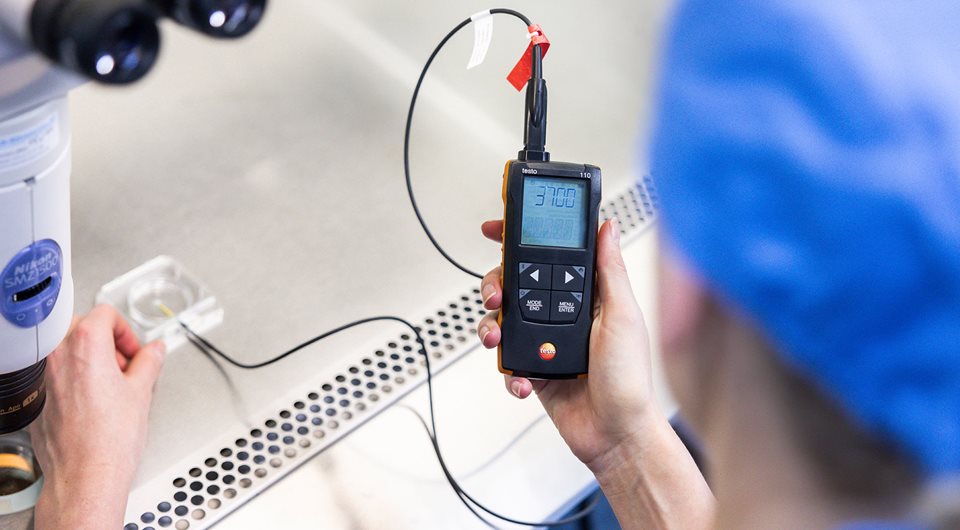
How to use VitroTemp
To measure the temperature of a medium in a dish during manipulations outside the incubator is very simple and straight forward when using VitroTemp.
Read instruction guideVitroTemp is the perfect complement to Vitrolife square dishes
Our dishes are specifically designed to support and facilitate IVF procedures, making your work easier and more effective. All square dishes have an absolute flat bottom. When placed on a heated stage, all dishes receive the same bottom temperature. VitroTemp is specifically designed for temperature measurements of media in Vitrolife square dishes while handled outside the incubator. This is a completely new way to measure temperature in media during manipulations in open air.
Once you have calibrated the temperature of your heated stage you can feel confident that all dishes will have the same temperature. Our dishes are manufactured with quality controlled and certified materials. The finished products are further tested to ensure a secure environment for gametes and embryos.
Learn more about dishes
References
- Hansen PJ. Exploitation of genetic and physiological determinants of embryonic resistance to elevated temperature to improve embryonic survival in dairy cattle during heat stress. Theriogenology 2007;68(Suppl I):S242-S249.
- Wang W-H, Meng L, Hackett RJ, Oldenbourg R; Keefe D. Rigorous thermal control during intracytoplasmic sperm injection stabilizes the meiotic spindle and improves fertilization and pregnancy rates. Fertil Steril 2002;77:1274-1277.
- Wale, PL, Gardner DK. The effect of chemical and physical factors on mammalian embryo culture and their importance for the practice of assisted human reproduction. Hum Reprod 2016;22:2-22.
- Vitrolife data on file 2023.
Do you have a question about this product?
Contact us
Find your local Vitrolife representative
Contact usMaximise success every step of the way
We provide what you need to secure improved results throughout the IVF journey.
